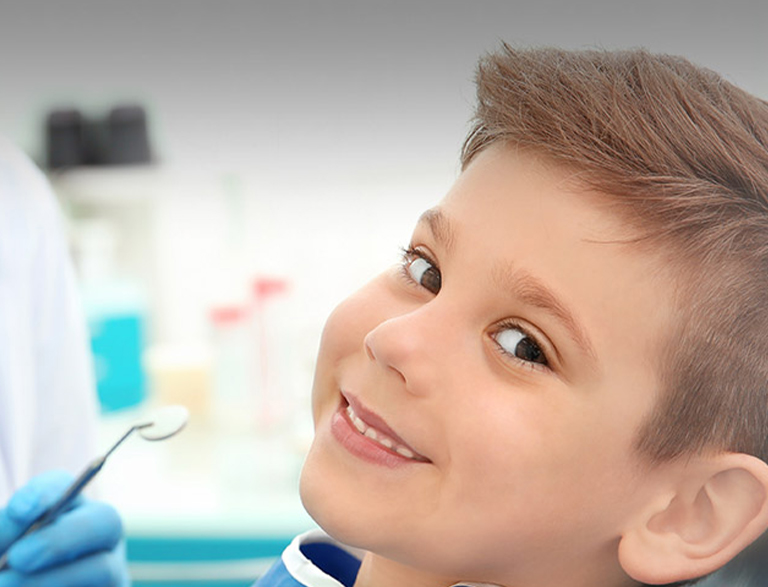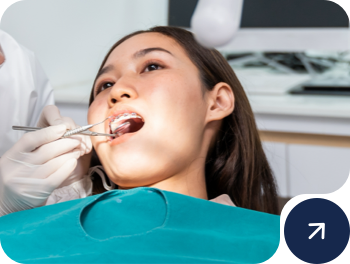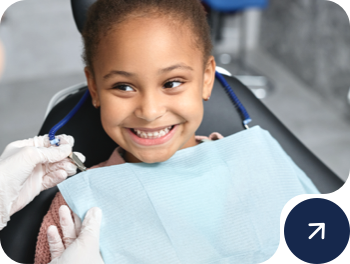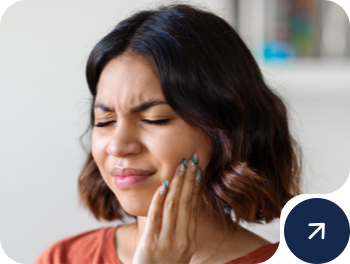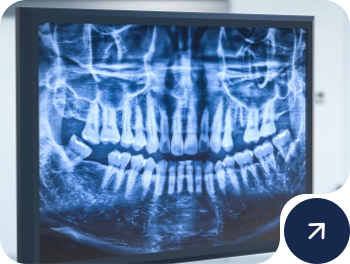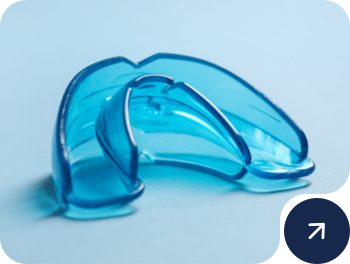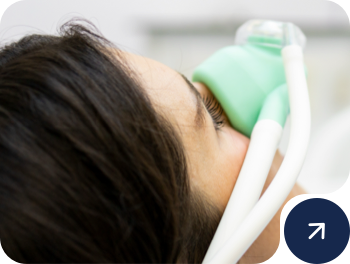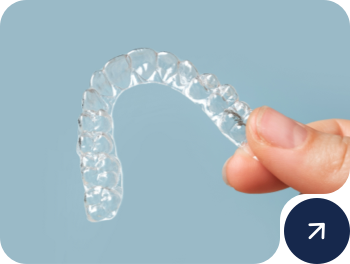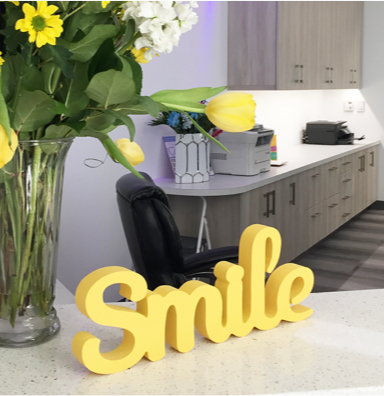Dental hygiene is just as important for children as it is for adults, but your little ones might not understand the importance of keeping their teeth clean. They might not even know when to brush or how to do it correctly!
Fortunately, we know all about proper dental hygiene for people of all ages. Read on to learn how often your children should brush their teeth, the best ways for them to do it, and of course, a few strategies for motivating them to do it by themselves.
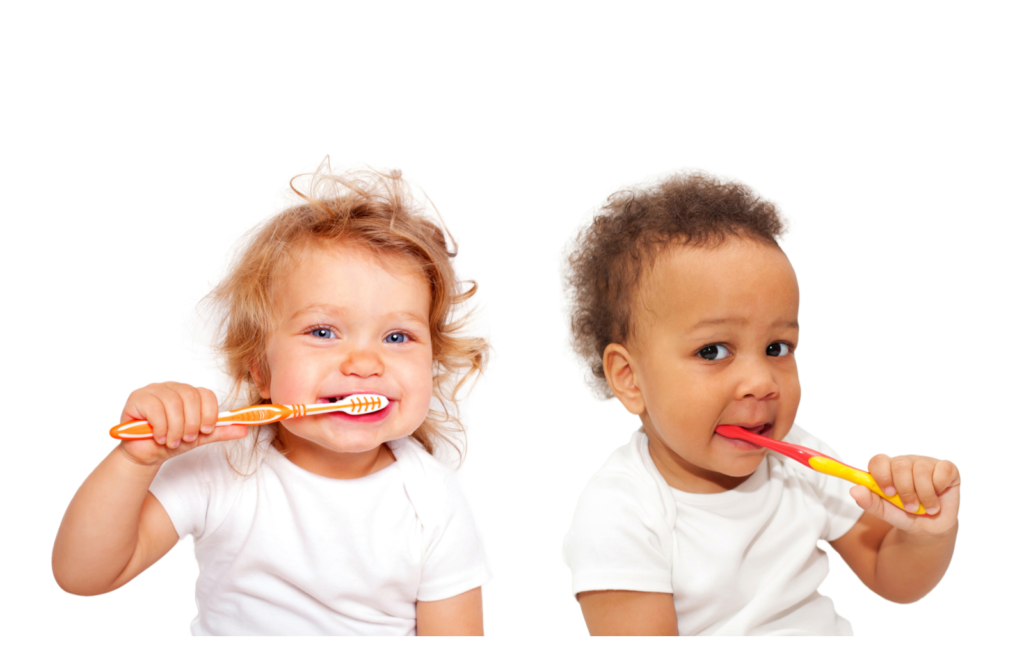
Why Is Brushing Important for Kids?
You might be wondering why children need to brush their teeth at all. Don’t baby teeth fall out after a few years? Why all the fuss about keeping them clean?
Many people don’t realize baby tooth decay can cause infections that can spread to other parts of the mouth, including the permanent teeth growing below them. As such, parents must ensure their children start practicing excellent dental hygiene early in life to protect the teeth they’ll have as adults.
Healthy baby teeth also allow your child to chew food and speak comfortably, so keeping them clean improves your child’s quality of life. Besides, the sooner your kids master healthy brushing habits, the easier they’ll find it to clean their permanent teeth consistently once those teeth arrive.
How Often Should Your Children Brush Their Teeth?
The Canadian Dental Association recommends brushing your child’s teeth for them until they are 3 years old. Once they reach age 3, it’s time for them to start learning how to do it for themselves, although you’ll probably want to supervise them until age 6 or so to make sure they’re doing a thorough job.
Children should brush their teeth for 2 minutes at least twice a day: once after breakfast and once before going to bed. Brushing at night is especially important since our mouths produce less saliva during sleep than they do while we are awake.
Since saliva helps to keep the mouth clean by flushing away bacteria, your child’s teeth will be more vulnerable to bacteria at night and must be as clean as possible before you put them to sleep.
Proper Brushing Technique for Children
Brushing often won’t protect your children’s teeth if they don’t know how to do it effectively. Here’s a list of some tips your child can use to make sure they brush correctly:
- Floss at least once a day to remove food particles and plaque from areas that toothbrushes can’t clean.
- Position the toothbrush at a 45-degree angle from the teeth and tilt the bristles towards the gum line.
- Brush each tooth with gentle circles before moving on to the next one. Make sure to clean every surface on each tooth, including the top (where the uneven surface can more easily trap bacteria).
- Use the tip of the brush for the front teeth.
- Avoid brushing too hard or “scrubbing,” as this can damage the gums.
Encouraging Your Children to Brush Their Own Teeth
Knowing when and how your children should brush their teeth is all well and good—but how can you make them do it? Here are a few creative ideas for motivating your child to clean their own teeth.
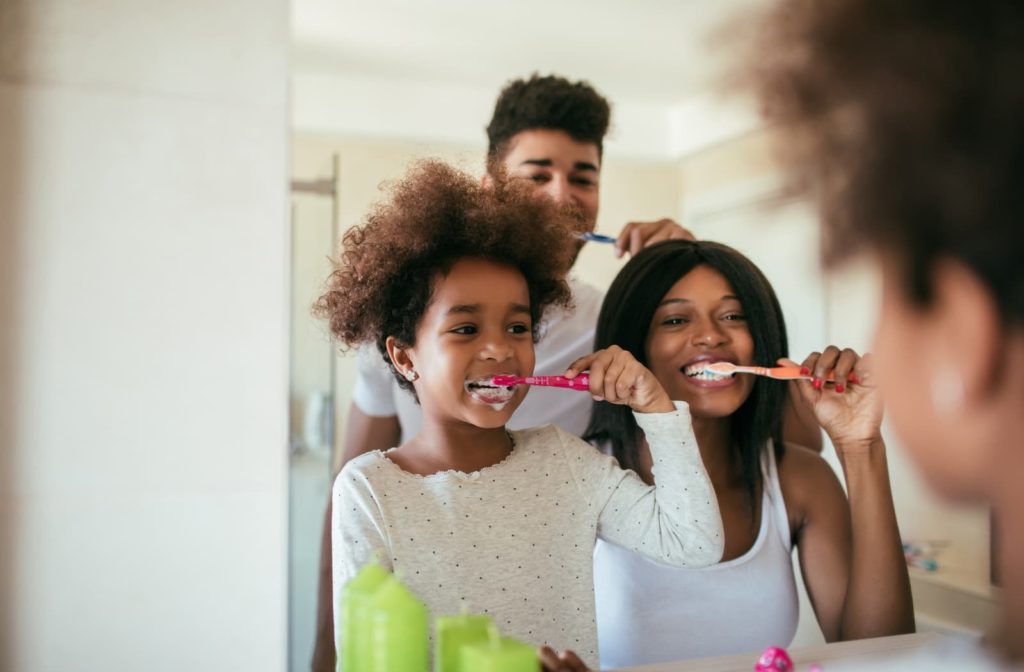
Set an Example
Children learn an incredible amount of their behaviour from watching their parents, and you can use that to your advantage when teaching them to brush! Turn brushing into a fun, parent-child activity by letting them watch you brush first and then trying it out for themselves. Make sure to get down on their level so they can see what you’re doing!
Let Them Choose Their Own Toothbrush
Letting your child pick out a toothbrush they like can turn brushing into a rite of passage instead of a mundane task. The more attached your child is to their toothbrush, the more excited they’ll be to use it when the time comes!
Turn Brushing Into a Game
Try to find something your child is already interested in doing and make it part of the brushing experience. For example: if your child loves music, try playing their favourite song in the bathroom and have them brush to the beat! For competitive children, turn brushing into a contest and see who can get their teeth cleanest in 2 minutes.
You can also turn brushing into a let’s-pretend-style game for imaginative children. Tell them that their teeth are covered in “cavity monsters” that they can scare away by brushing properly.
Use Positive Reinforcement
Remember: you want your children to look forward to brushing their teeth, so it’s a good idea to incentivize them a little. Make sure you compliment them on a job well-done. You can even use a sticker-chart to mark down days when they brush their teeth exceptionally well and award healthy treats or small prizes when they collect enough stickers.
Strong Brushing Habits Help Your Kids Have Healthy Teeth for Life
Learning to brush correctly in childhood is the single best thing your children can do to protect their permanent teeth.
Use the ideas above to get your kids excited about proper brushing, and refer to the other information we’ve included so that you can check on their progress.

